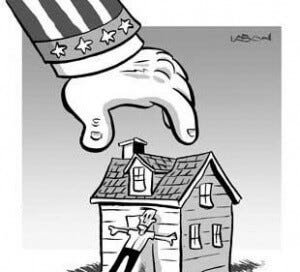Rent Regulations: NY Court Battle Against 2019’s HSTPA continues
A lawsuit challenging the legality of New York State’s 2019 Housing Stability and Tenant Protection Act (HSTPA) was argued in the second circuit federal court last week. The core disagreement between property owner groups and the State of NY is around the 5th amendment, the taking of property. The stakes are high: a bit under1,000,000 apartments (45% of all apartments) in NYC are rent regulated.
Owner groups, the plaintiffs in the suit, cited the Cedar Point Nursery v. Hassid precedent law in California and argued that beefed up rent regulations like the 2019 HSTPA were tantamount to a taking of property. In the California case the Supreme Court of the U.S (SCOTUS) ruled that the California farmers did not have to allow unionized labor unto their farms for 3 hours a day 120 days a year, as the state law previously required them to do, because it amounted to a taking of property and reduced their ability to harvest their farms during those periods.
Attorneys representing NY State and the Department of Housing and Community Renewal (DHCR), the defendants, responded that, for a physical taking to occur, there must be a heavy restriction on an owner’s ability to change the unit type in a multifamily building:
“To be a physical taking … it’s not enough to say that there’s one particular use of the property that is limited. They would have to allege that there’s no ability to change the use of that unit. A landlord can convert the building to condominiums or co-ops. It [sic] can convert it to commercial use for their own business. It [sic] can reclaim one unit for personal use. Arguments that those exit ramps are illusory or unavailable, they’re supported by purely speculative allegations. But they’re not sufficient in any event,”
– Claude Platton & Ester Murdukhayeva, attorney for the city’s Law Department and an attorney for the State Attorney Generals’ office, respectively.
In other words, DHCR and NYC attorneys argued that the 5th amendment taking of property didn’t apply to NY multifamily owners because rent regulations still allowed owners some degree of flexibility in the areas of usage and alteration for their property.
SCOTUS’s Chief Justice John Roberts stated in his ruling on the Cedar Point Nursery case in California that the essential question “Is whether the government has physically taken property for itself…or has instead restricted a property owner’s ability to use his own property.” Chief Roberts says that regulations that apply restrictive use on properties constitute a taking. In other words defendants and plaintiffs agree that there doesn’t not need to be a physical taking, only a restriction on use. The contentious question seems to be: does restricting an owner’s ability to raise rents as a reward for renovating units counts as a heavy handed-enough restriction that invokes the 5th amendment?
It is estimated that a decision will be reached by the courts in about two months. If the plaintiffs win, then the case goes back to trial courts. If the plaintiffs lose the case, then it will be escalated to the Supreme Court. Either way, investors should be energized because we are getting closer to an outcome and that will provide some clarity for the multifamily markets in NYC.
Sources: The Real Deal, Wall Street Journal
Originally published on February 27th, 2022


